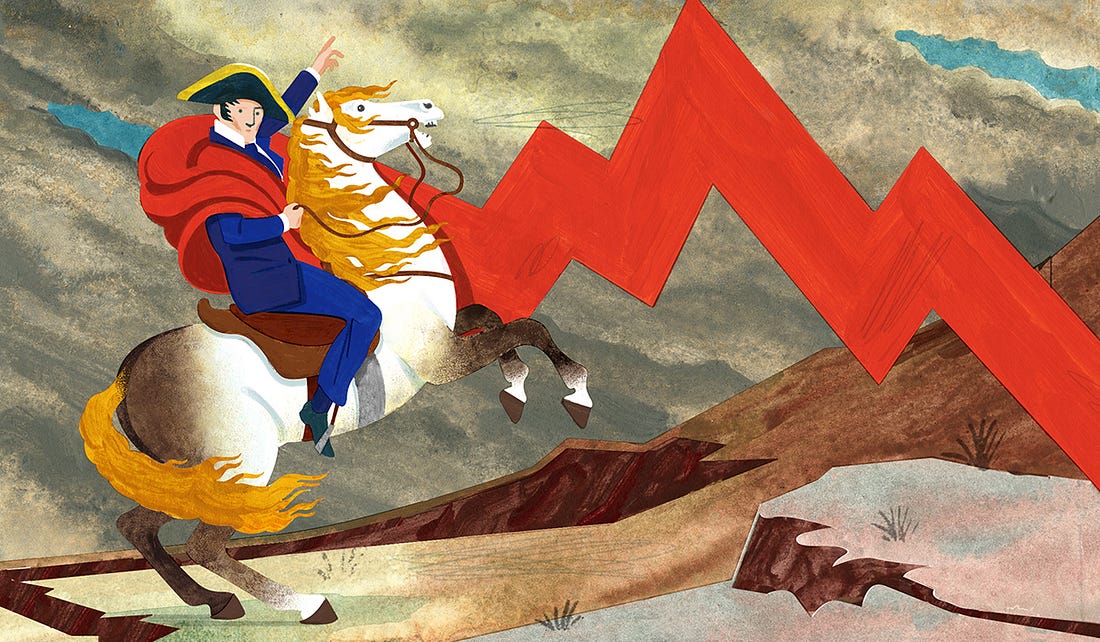3/18 – What’s Next
Hey there! Hope you have an awesome week.
Enjoy the content.
Articles to Read.
The MBA Myth and the Cult of the CEO

We tagged CEOs by the MBA programs they attended, formed monthly portfolios of companies broken down by the business school each CEO attended, and compared the returns of these portfolios to the broader market.
We found no statistically significant alphas — despite testing every possible school with a reasonable sample size. MBA programs simply do not produce CEOs who are better at running companies, if performance is measured by stock price return.
—
Seneca on The Shortness of Time
“A man who dares to waste an hour of time has not discovered the value of his life.”
— Charles Darwin
It is not that we have a short space of time, but that we waste much of it. Life is long enough, and it has been given in sufficiently generous measure to allow the accomplishment of the very greatest things if the whole of it is well invested. But when it is squandered in luxury and carelessness, when it is devoted to no good end, forced at last by the ultimate necessity we perceive that it has passed away before we were aware that it was passing. So it is—the life we receive is not short, but we make it so, nor do we have any lack of it, but are wasteful of it.
—
Here are the data brokers quietly buying and selling your personal information
You’ve probably never heard of many of the data firms registered under a new law, but they’ve heard a lot about you.
By buying or licensing data or scraping public records, third-party data companies can assemble thousands of attributes each for billions of people. For decades, companies could buy up lists of magazines subscribers to build targeted advertising audiences. These days, if you use a smartphone or a credit card, it’s not difficult for a company to determine if you’ve just gone through a break-up, if you’re pregnant or trying to lose weight, whether you’re an extrovert, what medicine you take, where you’ve been, and even how you swipe and tap on your smartphone.
All that information can be used to create profiles of you—think of them as virtual, possibly erroneous versions of you—that can be used to target you with ads, classify the riskiness of your lifestyle, or help determine your eligibility for a job. Like the companies themselves, the risks can be hard to see.
—

More than half (53 percent) of Americans ages 21 to 37 have received some form of financial assistance from a parent, guardian or family member since turning 21, according to a 2018 report by Country Financial, a financial services firm in Bloomington, Ill. This may include paying bills for a cellphone (41 percent), groceries and gas (32 percent), rent (40 percent) or health insurance (32 percent).
—
The Hard Truths of Trying to ‘Save’ the Rural Economy

There are 60 million people, almost one in five Americans, living on farms, in hamlets and in small towns across the landscape.
Rural America is getting old. The median age is 43, seven years older than city dwellers. Its productivity, defined as output per worker, is lower than urban America’s. Its families have lower incomes. And its share of the population is shrinking: the United States has grown by 75 million people since 1990, but this has mostly occurred in cities and suburbs. Rural areas have lost some 3 million people. Since the 1990s, problems such as crime and opioid abuse, once associated with urban areas, are increasingly rural phenomena.
—
Capitalism Causes Wealth Inequality. While it’s true that inequality is increasing in the US, global wealth inequality is actually decreasing (because globally the very, very poor are getting wealthier at a much quicker rate than the rich are getting richer). I do suspect inequality is a real tradeoff of capitalism in the long-run, however. But as Winston Churchill observed: “The inherent vice of capitalism is the unequal sharing of blessings. The inherent virtue of socialism is the equal sharing of miseries.”
Capitalism Causes Wealth to Be Concentrated in the Hands of Just a Few. “Bad” wealth concentration often results from monopolies, which capitalism is extremely effective at removing. “Good” concentrated wealth—earned through truly breakthrough innovation (like Bill Gates’s wealth, for example)—is great and should be celebrated. Gates ought to be rewarded for all the value he’s created, and society should encourage it.
—
Counter-Histories of the Internet
What could the internet have been? We’ve grown so used to our digital networks that they can seem like a force of nature, with laws as immutable as the laws of physics. Yet not long ago, these networks were the object of experiments, conflicts, and at times arbitrary choices. And the fates of many industries hung in the balance. For instance, should users pay for online access in units of time, or of bandwidth, or according to the number of websites they enter? This was once a live question; over the years, providers have settled on a combination of the first two options. But suppose that the architects of the web had chosen a different course: if entering a new website cost us a few cents, we might be more discriminating. Fake news, consequently, might spread across smaller ranges and at slower speeds.
┄
More to Check Out:
– How to Not Get Hacked
– Data-Driven Approach to Uncovering Startups
– Where You Should Move
– Tech Stocks Often Rise and Fall Together. They Shouldn’t.
– Cities Likely to Be Disrupted by Robots
My Update.
- The last week has been a blur -> Panama City, Medellin, NYC, Philadelphia, and now St. Louis. Great catching up with people and having tons of new experiences.
- Graduating in a month or so!! Wow how time is flying.
Thanks so much for reading! Find me on twitter : )